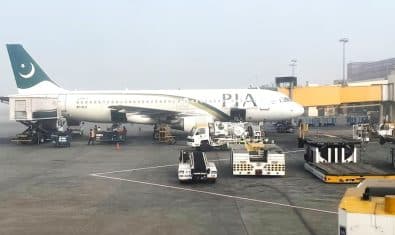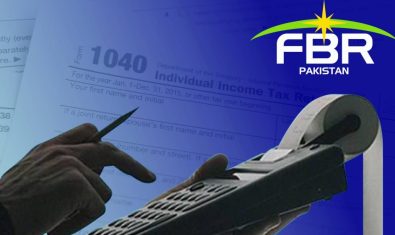Certain tax policies in Pakistan discourage investment in the tradable sector, and certain investment laws discriminate against foreign investors, the World Bank said in its latest report “South Asia Development Update Toward Faster, Cleaner Growth”.
WB noted that state-owned enterprises tend to have low investment rates, while also consuming government resources equivalent to around 23 percent of the fiscal deficit in fiscal year 2023.
The Bank also said that in Bhutan, Nepal, and Pakistan, reducing subsidies or budgetary support to state-owned enterprises could allow for greater private sector participation while also increasing fiscal space.
Pakistan, could boost productivity, diversify its exports, and increase product sophistication by reforming export subsidy and import duty schemes. In Pakistan, interest payments accounted for more than half of federal current government expenditures in fiscal year 2023.
The report noted that in 2022, the number of product groups affected by various restrictive import measures in Bangladesh was seven times the EMDE average, and more than 10 times the EMDE average in Pakistan and Sri Lanka. While these restrictions may have helped reduce pressures in the external sector, they have also led to import shortages and depressed economic activity.
The most recent restrictive measures include a profit repatriation requirement for foreign investors in Bangladesh, foreign exchange quotas in Bhutan, increased cash margin requirements in Nepal, and increased scrutiny of the repatriation of revenues from exports in Pakistan.
Such restrictions can be circumvented, for example by channeling foreign exchange through informal markets such as Hundi and Hawala. This circumvention may eventually lead to even greater losses of foreign reserves.
Lowering these barriers to trade and capital flows could help the region integrate into the global marketplace, with substantial benefits to long-term productivity. Pakistan, for example, could boost productivity, diversify its exports, and increase product sophistication by reforming export subsidy and import duty schemes.
The cost of shipping goods to and from Bhutan is elevated, and the country could unlock greater trade opportunities through investment in physical and digital infrastructure, combined with an improved and more predictable regulatory environment.
Moving toward low and uniform import tariffs in Bangladesh could also spur private investment, increase competitiveness, and promote export diversification.
Four South Asian countries have adopted debt ceilings—60 percent of GDP in India, Maldives, Sri Lanka, and Pakistan—and deficit targets—3 percent of GDP in India; 3.5 percent in the Maldives and Pakistan; and 5 percent in Sri Lanka. Yet, most of these countries are among those in South Asia with the highest government debt-to-GDP ratios.
During the pandemic, many countries activated escape clauses to suspend fiscal rules. This allowed governments to provide much-needed support for vulnerable groups, but also added substantial debt. No countries in South Asia are projected to achieve their budget or debt rule targets in 2023. Achieving compliance represents a challenge.
In Pakistan, government spending was significantly higher in election years and significantly lower after elections during 2000–07. Fiscal deficits were significantly larger in election years during 1973–2009.
India and Pakistan already rank among the world’s five EMDEs with the largest public investment in renewable energies. But substantial private investment will be needed for firms to adopt green technologies. Governments can support the adoption of energy-saving and low emission technologies, said the report.
Measures could include ensuring the availability of financing, incentivizing a shift toward green energy by removing fossil-fuel subsidies, introducing carbon taxes, or introducing market-based regulation. Firms sometimes vastly underestimate the savings from new technologies, it added.
As a result, improving access to information about the availability, cost-saving potential, and competitiveness of green technologies can help boost adoption at limited cost. Access to reliable energy grids can encourage firms to phase out energy inefficient backup energy systems.





















